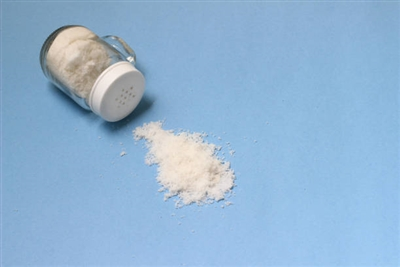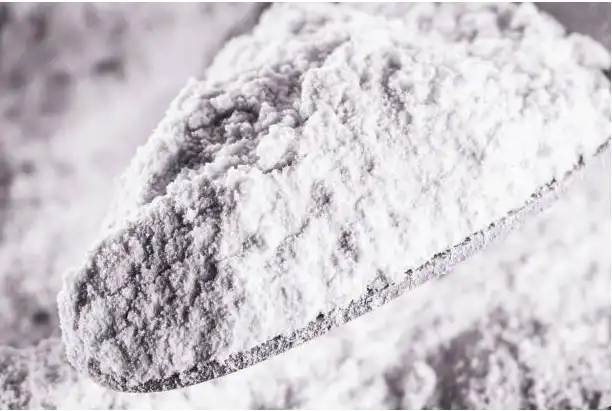Can L-Theanine Cause Constipation?
L-theanine powder is an amino acid that is commonly found in green and black teas. It has gained popularity as a supplement due to its calming effects on the mind. However, some people have raised concerns about potential side effects like constipation. In this blog post, we’ll take an in-depth look at the evidence around L-theanine and constipation.
What Is L-Theanine?
theanine, also known as r-glutamylethylamide, is a naturally occurring amino acid found primarily in tea leaves. It is similar in structure to the neurotransmitters l-glutamate and l-glutamine in the brain.

Some of the proposed benefits of L-theanine include:
Reducing stress and anxiety
Improving sleep quality
Enhancing concentration and focus
Boosting mood
Providing antioxidant effects
L-theanine is available as an over-the-counter supplement, commonly taken in dosages of 100-200 mg per day. It’s known for its ability to induce relaxation without causing drowsiness.
How Could L-Theanine Cause Constipation?
There are a few potential mechanisms by which L-theanine could theoretically cause constipation:
Slowed bowel motility - By promoting relaxation, L-theanine could slow down contractions in the colon, leading to less frequent bowel movements. Calcium channel blockers like verapamil have similar effects on the gastrointestinal system.
Decreased gut secretions - L-theanine may potentially reduce secretions from the stomach, pancreas and liver that help digest food and keep bowels regular.
Altered gut microbiota - Some research indicates L-theanine may impact bacterial populations in the gut, which play an important role in metabolism and bowel regularity.
Increased fluid absorption - The amino acid could enhance absorption of fluids in the colon, resulting in harder, drier stools that are more difficult to pass.
However, it’s important to note that these are hypothetical mechanisms and have not been proven. More research is needed to determine if L-theanine directly causes constipation via any of these pathways.

Evidence On L-Theanine And Constipation
Very few studies have looked specifically at whether L-theanine supplementation leads to constipation. However, we can examine the limited evidence available:
An animal study found that injecting rats with 50-200 mg/kg of L-theanine did not significantly affect gastrointestinal transit time, suggesting no impact on constipation.
A study in the British Journal of Nutrition reported that 200 mg/day of L-theanine for 8 weeks did not cause any adverse gastrointestinal effects in human subjects.
In a systematic review of 11 randomized controlled trials with 652 patients, L-theanine at doses of 200-400 mg/day was well-tolerated and did not result in any statistically significant gastrointestinal side effects.
Case reports linking L-theantine supplementation directly to constipation are lacking. However, this does not necessarily mean the side effect is non-existent, as subtle cases may go unreported.
Overall, there is currently minimal evidence suggesting L-theanine causes constipation in humans at commonly used doses. But larger scale studies specifically examining this side effect are still needed.
Other Supplements That May Cause Constipation
While L-theanine has not been shown to commonly cause constipation, there are some other supplements that may have this adverse effect:
Calcium - Supplemental calcium can cause constipation by binding to bile acids and slowing digestion. Older women are at higher risk.
Iron - Iron supplements frequently cause gastrointestinal upset, including intestinal cramping and constipation. Taking iron with food can help minimize this.
Vitamin C - Large doses of vitamin C can act as an osmotic laxative and pull water into the intestines. But low doses may potentially have a constipating effect.
Antacids - Compounds like calcium carbonate and aluminum hydroxide in some antacids can cause constipation.
Opioids - Prescription opioid pain relievers often cause severe constipation by slowing gut motility.
If you regularly experience constipation after taking a certain supplement, it may be worth re-evaluating with your doctor. Switching brands or reducing your dosage may help.
Tips To Prevent Constipation From Supplements
Here are some tips to help avoid constipation when taking L-theanine or other supplements:
Drink plenty of fluids - Getting enough water helps keep your bowel movements regular. Aim for 8 glasses daily.
Exercise regularly - Physical activity stimulates the intestines and can counteract constipating effects.
Eat high-fiber foods - Fruits, vegetables, whole grains, beans and nuts help move waste through the colon.
Limit dairy and red meat - These foods can be binding and slow down your digestion.
Try probiotic supplements - Probiotics support healthy gut flora and regular BMs. Good options are lactobacilli and bifidobacteria.
Consider magnesium citrate - Magnesium helps draw water into the intestines and acts as an osmotic laxative.
Being proactive about your diet, exercise and gut health can help minimize the odds of any supplement causing constipation. Let your doctor know if you have persistent issues.
Assessing Your Individual Risk
While L-theanine may not directly cause constipation in most people, some individuals can be more susceptible than others. Factors that can raise your personal risk of constipation from supplements like L-theanine include:
Age - Older adults tend to be more prone to constipation due to slower digestion.
Medical conditions - Diseases like diabetes, neurological disorders, hypothyroidism and irritable bowel syndrome increase constipation risk.
Medications - Use of opiates, antidepressants, calcium channel blockers or iron supplements can make constipation more likely.
Low fiber diet - Not eating enough high-fiber fruits, vegetables and whole grains makes constipation more common.
Dehydration - Inadequate fluid intake can lead to harder, drier stools.
If you have any of these risk factors, you may be more vulnerable to constipation from supplements that can affect digestion and motility. Pay close attention to any changes you notice with your bowel habits.
The Bottom Line
Based on current evidence, there is minimal data to suggest L-theanine directly causes constipation or significant gastrointestinal side effects in humans at commonly used dosages. Preliminary studies have not observed a link, but larger controlled trials are still needed.
However, some people do seem sensitive to digestive effects from supplements like L-theanine. If you experience constipation, try adjusting your dosage, take it with food, or switch products. Other preventive strategies like exercise and probiotics can also help maintain regularity.
If you want to get more information about plant extract powder, Please email us at angel@angelbiology.com for more information!


